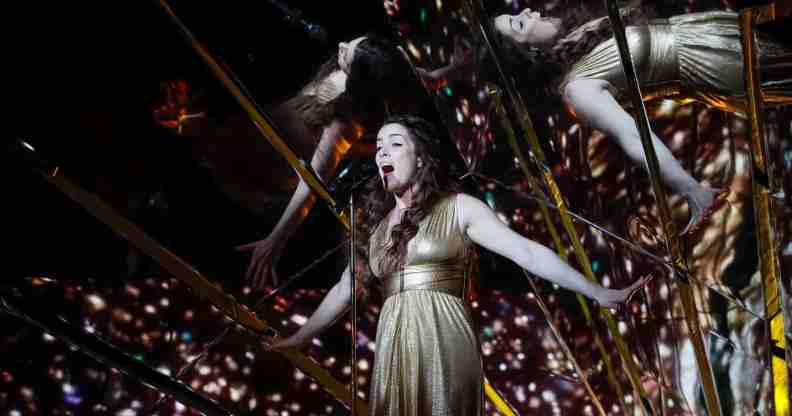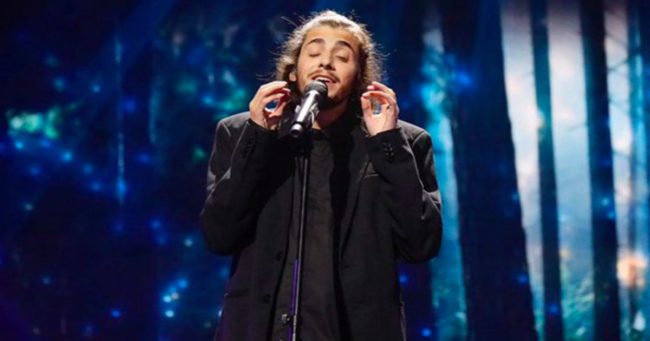Portugal wins the Eurovision Song Contest

Portugal has won the Eurovision Song Contest 2017.
Salvador Sobral topped the leaderboard with a massive 758 points. He won both the jury vote and the public votes, smashing Bulgaria into second place with 615 points.
In third place was Moldova with 374 points. It is the first time Portugal has won Eurovision in the contest’s history and means that the country will host next year’s competition.

Salvador is a 27-year-old Portuguese singer who previously placed seventh in Idolos, the country’s version of Pop Idol.
The UK entry, Lucie Jones, struggled in the public vote after a relatively strong showing from the initial jury voting round.
The Welsh singer and former X Factor contestant, who appeared in West End productions of Rent, We Will Rock You and the musical adaptation of Legally Blonde, finished in 15th position on a combined jury and public points total of 111, with just 12 of those points coming from the voting public.
While on the right hand of the leaderboard, this was still a vast improvement on the UK’s recent years, including Joe and Jake’s lowly 2016 placement of 24th with just 62 points.
Lucie’s chances in the contest were seemingly handed a boost when she was allocated a traditionally well-performing slot in the Grand Final running order.
She performed 18th on the night out of 26 artists, a position that has traditionally performed well in the competition.
Of the 12 most recent Eurovision winners before last night, nine had performed between the 17th and 22nd slot on the night.
The odds on a victory for the UK were shortened after the running order was announced, with only Italy, Portugal, Bulgaria, Belgium and Sweden on shorter odds.

The pre-competition odds-on favourite was Italian entrant Francesco Gabbani, who established himself as a musician in the country with a nomination for an MTV Award.
His entry Occidentali’s Karma already had more than 100,000,000 on views on YouTube for the music video before the contest even aired.
The Italian team pulled out all the stops for Eurovision, with a dancing gorilla making an appearance on stage, but it wasn’t enough to win over the juries or the public.
Despite the visuals, the Italian-language track itself was not standard Eurovision fare, drawing lyrics from philosophy and Eastern culture, while also giving a nod to Singin’ in the Rain.

